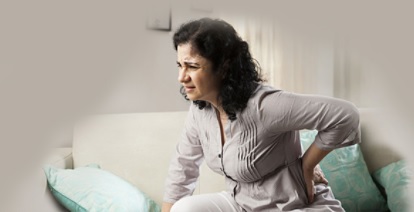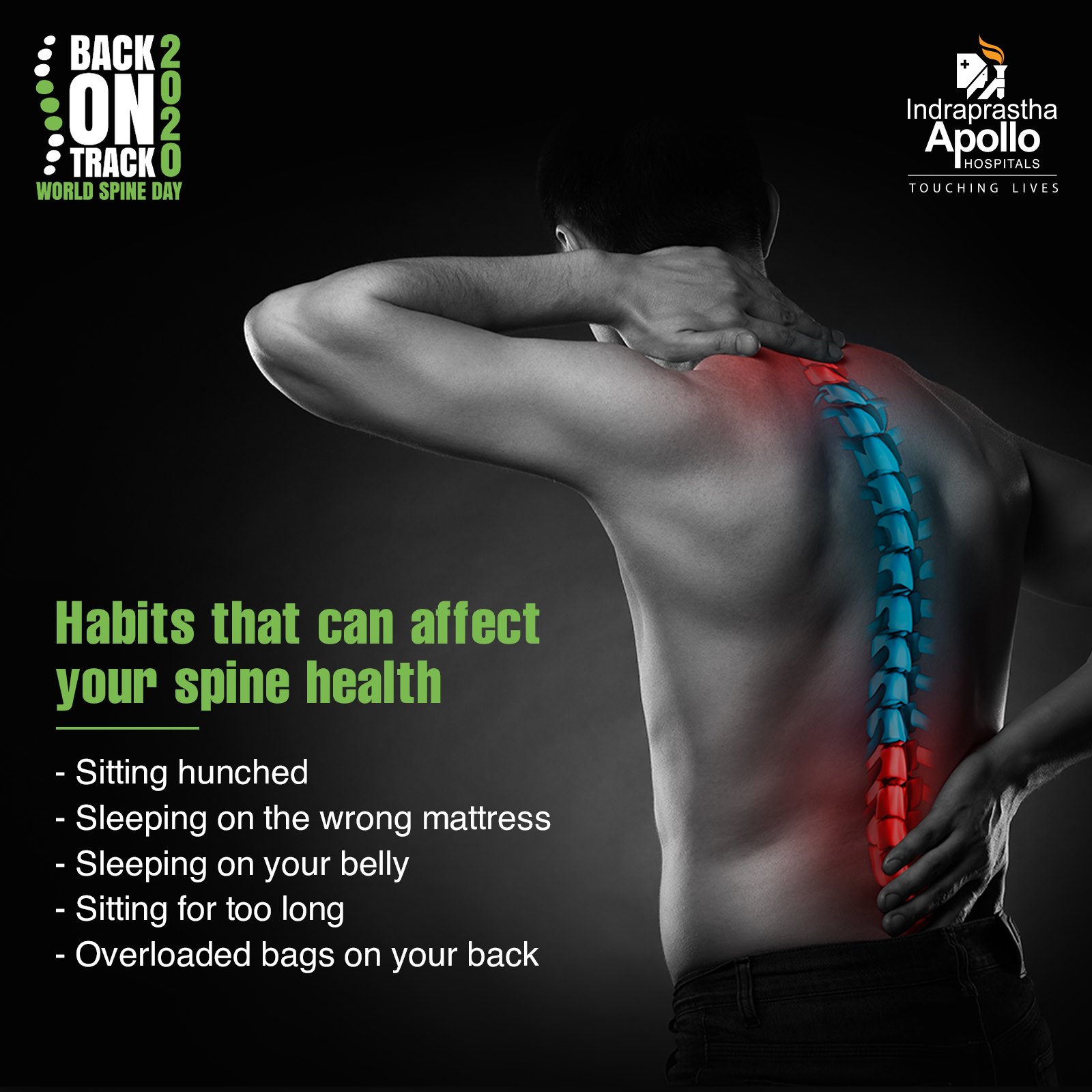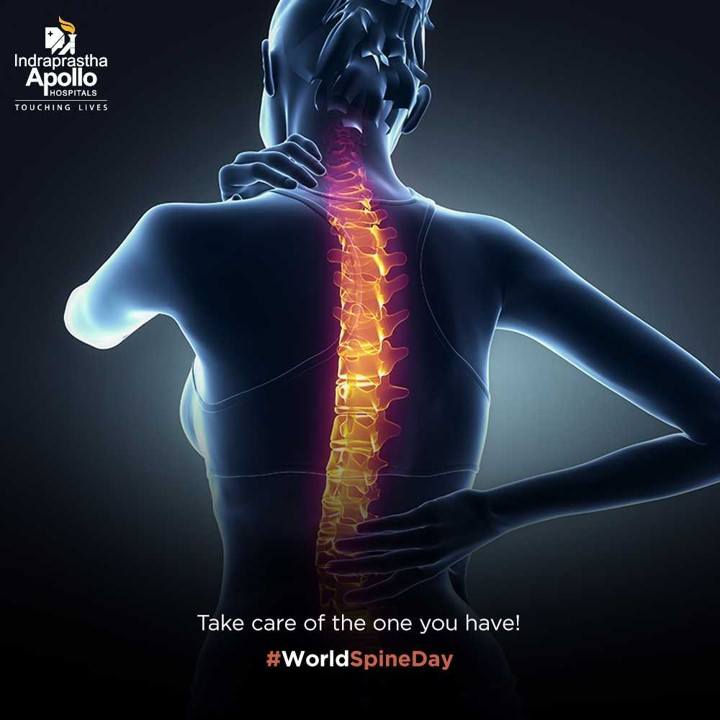An Overview
A prolapsed disc (slipped disc) also known as spinal disc herniation refers to a spinal condition concerning rubbery cushions or disks which sit between the vertebrae bones in your spine. Each of these spinal discs has a soft, jelly-like centre, known as the nucleus, which is encased in a tough, rubbery exterior, known as the annulus. A disc prolapse or herniated disk takes place when some part of the nucleus comes out through a tear in the annulus. It can occur at any part of the spine, resulting in pain, numbness, or weakness in the nearby nerves. Surgery is not generally necessary for its treatment. Let us know more about slip-disc in detail.
What is a Disc Prolapse?
The spinal cord is an important part of the human body for it holds the nerves from the brain. The spinal cord is surrounded by the spine, which has many bones known as the vertebrae. Between two vertebrae, discs made of strong rubber-like tissues are present. These discs make the spine flexible. They contain a soft material known as nucleus pulposus encapsulated within outer fibers. A disc prolapse indicates the rupturing of this nucleus due to an injury of the outer fibers. This causes the inner portion of the disc to protrude through the outer ring. This process can either take place suddenly or gradually over a period of time.
Symptoms of Disc Prolapse
Any part of the spine can be affected by slip-disc; it mostly happens in the lower back and sometimes in the neck. Signs and symptoms depend on the location of the herniated disk and the type of soft tissues affected. Most common symptoms include:
- Arm/leg pain: If the disc prolapse affects the lower back, most pain will be experienced in the thighs, buttocks, and calf. The pain can also spread to the foot. This is due to the pressure on the sciatic nerves. If the prolapsed disc is in your neck, then the shoulder and arm of the prolapsed side are mostly affected. The pain can be triggered by a cough, sneeze, or even moving the arm or leg into certain positions, like straightening it. This pain is often described as sharp, burning, or electric shock-like.
- Numbness and tingling: People who suffer from a slip-disc often complain about a numbing or tingling feeling in the body part to which the affected nerve is connected. The tingling sensation can be best described as pins-and-needles.
- Weakness: Muscles connected with the affected nerves tend to weaken in this condition. This will eventually make you stumble or reduce the ability to hold or lift items.
- Loss of bladder control: In severe or rare cases, the nerves at the very bottom of the spinal cord are affected. In such cases, there will be low back pain coupled with a loss of bladder control and bowel function.

Causes of Disc Prolapse
As mentioned, slip-disc does not essentially entail slipping of the disc; it is the bulging/herniating/protruding of the inner part of the disc into the outer parts and nearby nerves. It is mostly due to the result of excessive pressure on the spinal cord. This may be due to:
- Disc degeneration: The most common cause of disc prolapse is the degeneration of the disc material, which is mostly due to the gradual, age-related wear and tear. As one ages, the flexibility of the discs reduces and they become more prone to tear or rupture.
- Injury: Falling from a considerable height and landing on your buttocks can also cause disc prolapse. If the force of the fall is strong enough, it shall pass through the spine resulting in a vertebra fracture or disc prolapse.
- Certain physical activities: You can put unwanted pressure on your spinal cord with activities like bending forward, weight-lifting sports, or attempting to lift objects that are too heavy. This could cause the disc to rupture. Even occupations that involve a lot of pulling, pushing, lifting, as well as sitting around could lead to a slip-disc.
- Genetics: People who have a family history of disc prolapse are at higher risk to be affected by the condition.
- Lifestyle choices: Certain lifestyle choices like unnecessary stress, obesity, and smoking can cause the discs to break down faster.

Treatment for Disc Prolapse
Most of the disc prolapse cases get cured automatically within 6-8 weeks’ time and the symptoms almost disappear. Unless there is significant nerve compression, they are always treated conservatively with pain medications. And if the symptoms are not managed by conservative ways, interventions like surgeries are recommended. These include:
- Medication: If you are suffering from mild to moderate pain, your doctor may prescribe you certain over-the-counter medications like naproxen sodium, ibuprofen, and acetaminophen. In case the oral medication is not sufficiently effective, corticosteroids may be injected into parts near the spinal nerves. You may also be given muscle relaxants if you have muscle spasms.
- Physiotherapy: Your doctor may also recommend going for physiotherapy to help ease your pain. A physiotherapist will teach you certain exercises and positions to help you minimize the disc prolapse pain.
- Home remedies: Hot and cold packs can be used on the affected areas to relieve pain and inflammation and give comfort. Staying in bed can stiffen the muscles and worsen the condition. A short walk or carrying out light house chores can help. Make sure your movements like bending and lifting are slow and controlled.
- Surgery: People with severe cases of herniated disks require surgical treatment. This option is suggested when conservative treatments prove ineffective for as long as six weeks. Mostly, surgeons remove only the protruding portion of the disk. In rare cases, the entire disk is removed and the vertebrae are fused with a bone graft. Metal hardware is placed into the spine to provide spinal stability.
Prevention of Disc Prolapse
There are many ways to prevent disc prolapse. These include:
- Regular exercise helps to strengthen the muscles and stabilize the spine.
- Maintaining a good posture is crucial to reduce the pressure on your spine and discs. Keeping the back straight and making your legs do most of the work, instead of the back, while lifting will considerably reduce the chances of a slip-disc.
- Maintaining a healthy weight is very important. Excess weight or obesity puts increased pressure on the spine and discs.
- Avoiding the use of all tobacco products and quitting smoking is a crucial step in preventing disc prolapse.
Disc prolapse is a common yet preventable medical condition. Make sure to practice all preventative measures. Contact a spine doctor as soon as you feel any back or neck pain to get the best treatment for your condition.


